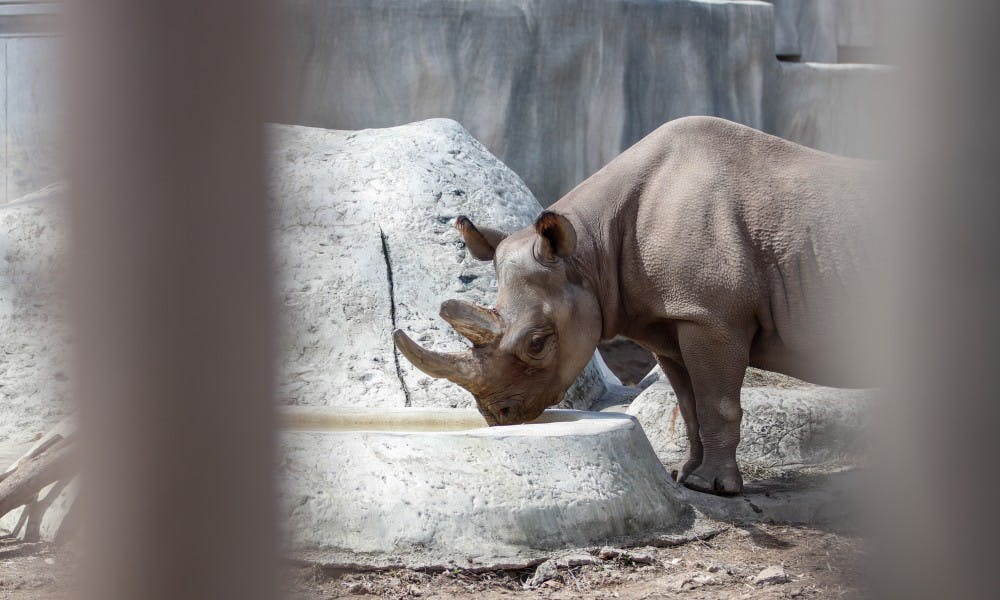Potter Park Zoo’s black rhino Doppsee is pregnant and due to give birth in late December.
Black rhinos are critically endangered, so the pregnancy is no small feat.

Potter Park Zoo’s black rhino Doppsee is pregnant and due to give birth in late December.
Black rhinos are critically endangered, so the pregnancy is no small feat.
“We don’t want to see these species go away,” said Kaiti Chritz, Potter Park Zoo’s communications manager. “That’s really what drives us and all of our passions here.”
Fewer than 5,000 black rhinos are estimated to be alive in the wild, which is why conservation efforts are in place to allow the animals to thrive. Potter Park Zoo is a member of the Association of Zoos and Aquariums (AZA) and focuses on conservation efforts to protect threatened and endangered species.
“AZA zoos are really committed to conservation of these species, and for us it’s really important because we want these species to survive long-term,” Chritz said. “There are wonderful success stories coming out of zoos related to conservation.”
Zoo staff worked to ensure the breeding between the two rhinos was safe. Black rhino pregnancies in zoos are uncommon with only a few taking place in a year, Chritz said.
So before introducing Doppsee and Phineus, the zoo brought in an expert from the Cincinnati Zoo with experience watching black rhino introductions to help guide them through the process.
“It is actually pretty tough to know as much as you can,” Chritz said. “The zoo community as a whole really has been working together.”
Black rhinos are known to be aggressive when breeding, so intricate planning took place before introducing the two rhinos. Staff monitored the interactions and were prepared to intervene if necessary.
The zoo was able to conclude that Doppsee was pregnant based on her hormone levels, but a few months passed before the zoo was confident enough to publicly announce the pregnancy, according to a press release.
A black rhino's gestation period is 15-16 months, and a fetus is not expected to be seen via ultrasound for at least a few more months, but a presence of uterine fluid has been confirmed via ultrasound.
“It’s difficult to predict what's gonna happen, I would say that we’re all cautiously optimistic,” Chritz said. “It’s very hard to breed and successfully have a successful pregnancy with black rhinos, so we’re very excited to even confirm that she’s pregnant.”
There are about 60 black rhinos in zoos throughout the country. This means there is limited knowledge about how to successfully breed them, making this an even more impressive feat.
“It’s going to be a learning opportunity for everyone, and we will use every resource we have, especially with other AZA-accredited zoos,” Chritz said.
Support student media! Please consider donating to The State News and help fund the future of journalism.